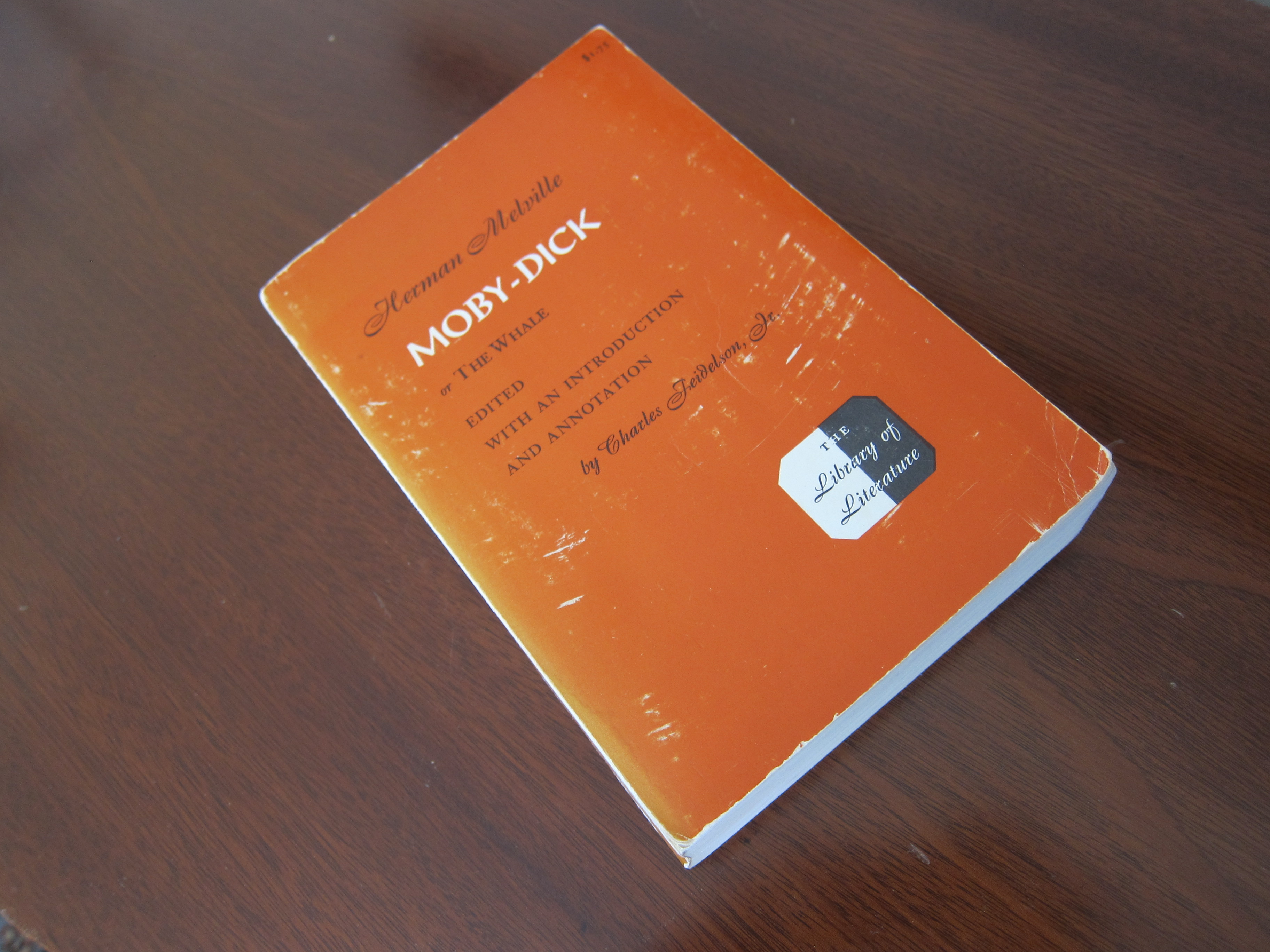I have spent much of the last month aboard the Pequod in the company of Queequeg, Starbuck and a guy who wanted to be called Ishmael, along with an assortment of other rough characters. Ahab was the captain of the whaler, and there was no doubt about that because he expected everyone to follow his will—and everyone did. He was hung up on one particular whale, but I think he pursued not so much the whale as a fish but rather the idea of the whale or the meaning of the whale or his irrational and unquenchable gut-feelings toward that whale.
Ishmael knew a heck of a lot about whales and whaling ships. He shared with me everything he knew about whale anatomy and how to go about slaughtering a whale using simple hand tools. He seemed to know what anyone of note had ever said or thought about whales at any time and for any reason as far back as the days of Jonah. He even had opinions about pictures of whales (most he thought monstrously inaccurate). Don’t get him started—Ishmael would go on and on and on on the subject of whales, and I almost lost patience with him, but there I was, stuck onboard with him. Sharp readers will have caught my reference to the whale as “a fish” and questioned whether a whale is properly described as a fish. Of course, Ishmael had that covered, too: “I take the good old fashioned ground that the whale is a fish, and call upon holy Jonah to back me.” A whale, he said, “is a spouting fish with a horizontal tail,” and for him, that settled the matter. I couldn’t disagree.
So, what was it with Ahab and the white whale, Moby Dick? Theories abound, and there is no consensus. Maybe it was simply revenge, because Ahab had lost a leg in an earlier encounter with the fish. But if you regard Moby Dick metaphorically, it gets more complicated. To some, the whale represented the blank indifference of nature. To others, the whale represented evil. Some saw the white whale as an emissary of a dark spirit-world. Yet others felt that it was Ahab’s obsession that gave the whale significance and turned Ahab into a raging dictator or megalomaniac. Even my rambling friend Ishmael would often refer to the captain as “monomaniac.” If most on board thought the peg-legged captain unstable, none dared say so. Ever-faithful Starbuck may have known him best, but even he could not keep Ahab from his single-minded pursuit of Moby Dick.
In the end, I could not blame Ahab. Sure, he was a little nuts, but who isn’t? And who is to blame Ahab for staying true to himself and for wanting to be the master of his fate and captain of his soul? Wasn’t it right for the captain to burn and rave at close of day, to rage against the dying of the light and not go gentle into that good night? As for the whale, I think Ishmael was onto something. Moby Dick was the ultimate Loose-Fish. As Ishmael explained, the American fishermen have a code: a Fast-Fish belongs to the party fast to it; a Loose-Fish is fair game for anybody who can soonest catch it. In this code, he said, can be found the fundamentals of all human jurisprudence:
“What are the Rights of Man and the Liberties of the World but Loose-Fish? What all men’s minds and opinions but Loose-Fish? What is the principle of religious belief in them but a Loose-Fish? What to the ostentatious smuggling verbalists are the thoughts of thinkers but Loose-Fish? What is the great globe itself but a Loose-Fish?”
What was Loose-Fish Moby Dick? Fair game. The whale was not evil and not death, but rather the immutable finiteness of life. That is what Ahab could not help but pursue and risk all to overcome.
Views: 190
Some other stuff for later,
- 61This month, I have had the privilege of playing Neil in a community theater production of The Quality of Life, a beautifully-written, award-winning play by Jane Anderson. Neil and his wife Jeanette are living in a yurt on their property in the Berkeley Hills in Northern California after losing their…
- 60She surprises me every time she shows her face, and yet she has always been with me. Now that I am in exile, I know that she is closer, though perhaps she has always been this close. It may be that the only thing that is different now is that…
- 56I wondered sometimes whether I would lead my life any differently if I knew how old I was. It was a question not unique to exile, but in the time of exile, age was defined by death. At a younger age death had been more abstract than it now seemed.…

Leave a Reply